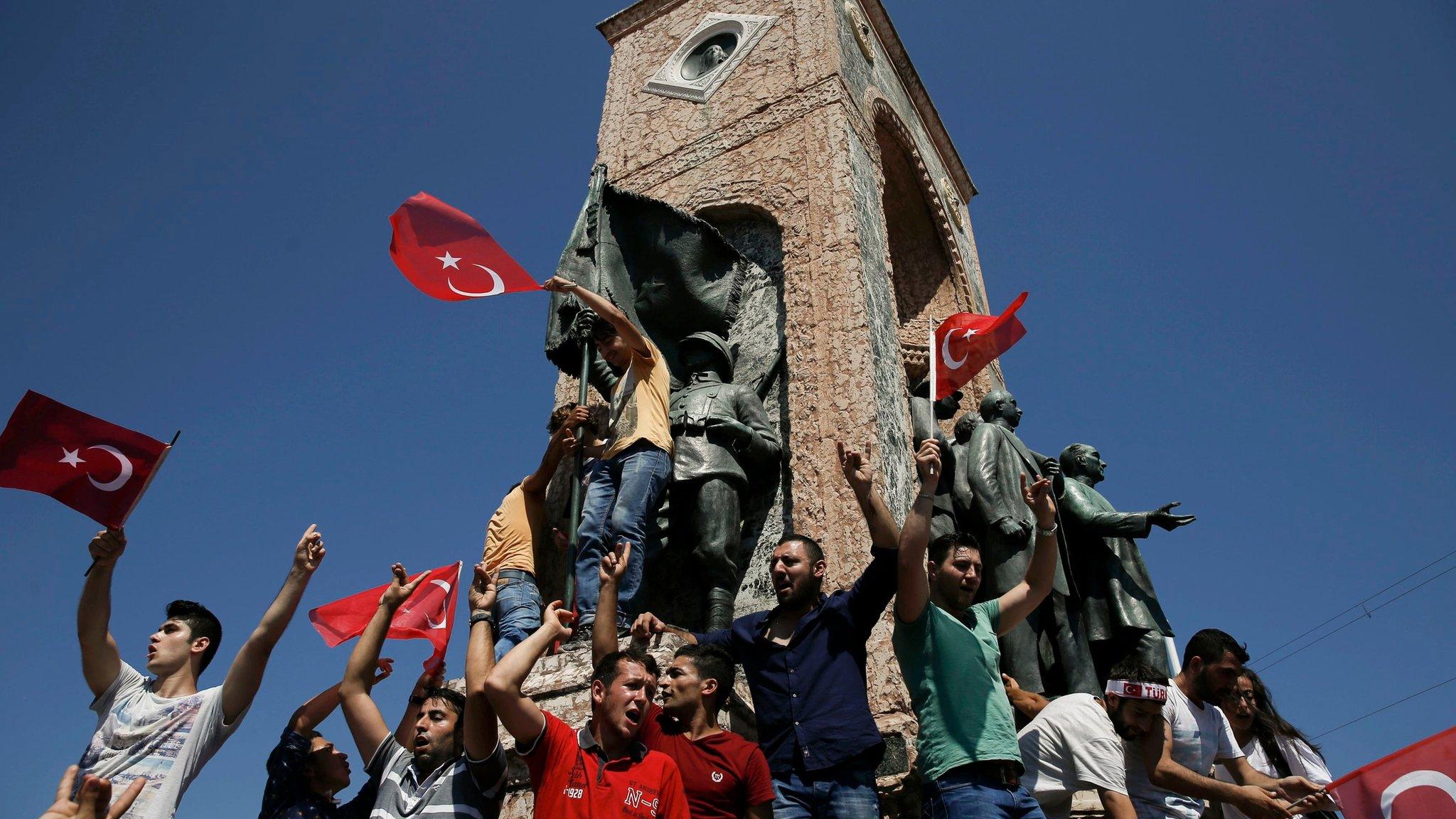Turkey coup: Purge widens to education sector
- Published
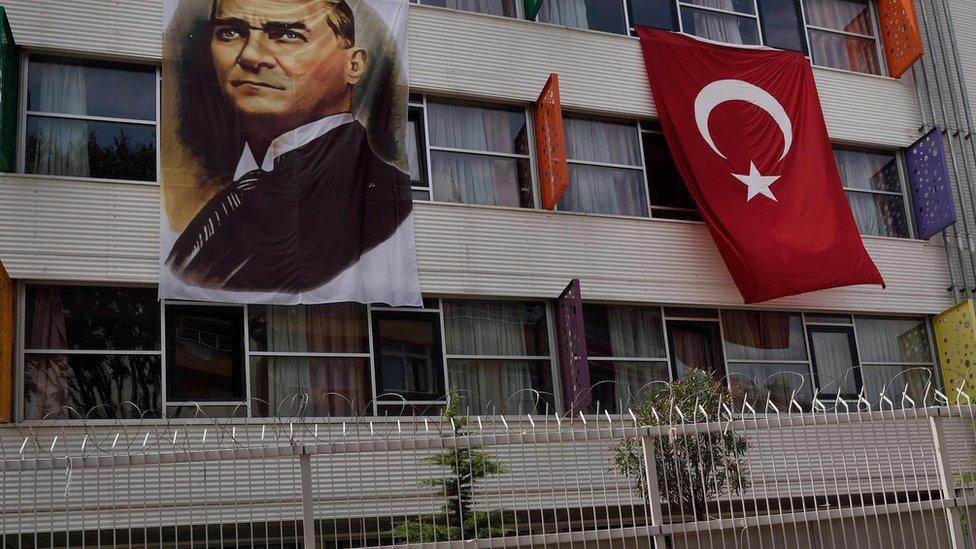
A religious school in Istanbul - education staff have been purged after the coup, along with the army and the judiciary
More than 15,000 education staff in Turkey have been suspended after last week's failed coup, as a purge of state officials widens still further.
The ministry of education accused them of links to Fethullah Gulen, a US-based cleric the Turkish government says was behind Friday's uprising.
Mr Gulen denies any involvement.
More than 1,500 university deans have also been ordered to resign and the licences of 21,000 teachers working at private institutions revoked.
Prime Minister Binali Yildirim vowed to take action against Mr Gulen's supporters.
"I'm sorry but this parallel terrorist organisation will no longer be an effective pawn for any country," Mr Yildirim said, according to Reuters news agency.
"We will dig them up by their roots so that no clandestine terrorist organisation will have the nerve to betray our blessed people again."
The US said it had received documents on Mr Gulen from Turkey and was reviewing them to see if they constituted a formal extradition request, as Turkey has said it will seek.
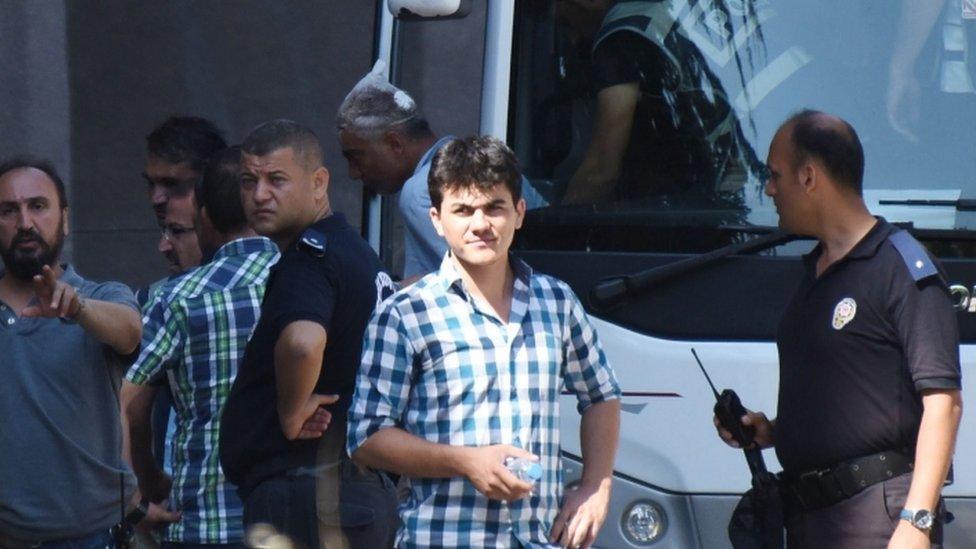
Soldiers accused of involvement have been appearing in court
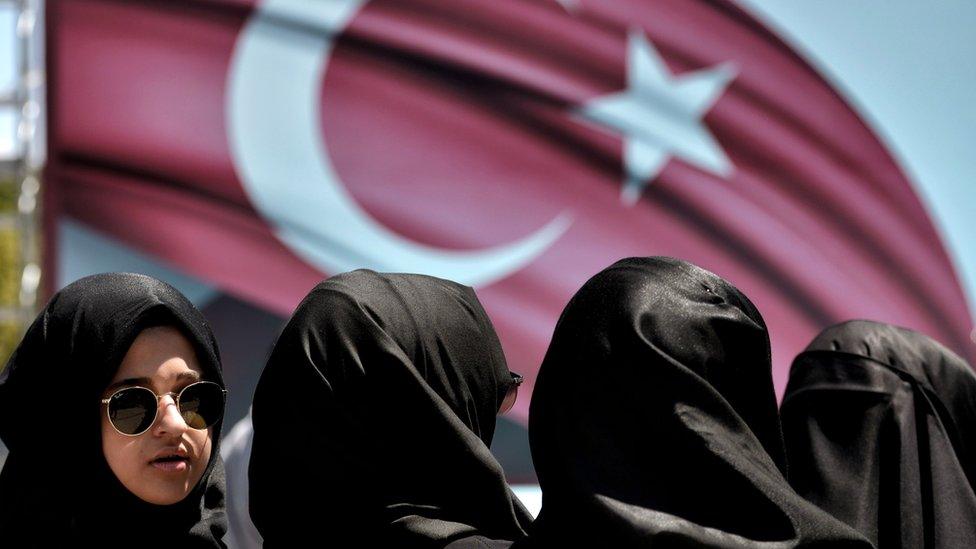
Supporters of Mr Erdogan have continued to hold rallies
The army, judiciary, security and civil service have all been targeted following Friday's coup attempt:
6,000 military personnel have been arrested, with more than two dozen generals awaiting trial
Nearly 9,000 police officers have been sacked
Close to 3,000 judges have been suspended
Some 1,500 employees of Turkey's finance ministry have been dismissed
492 have been fired from the Religious Affairs Directorate
More than 250 staff in Mr Yildirim's office have been removed
Turkey's media regulation body on Tuesday also revoked the licenses of 24 radio and TV channels accused of links to Mr Gulen.
The country's Religious Affairs Directorate has banned religious funerals for supporters of the attempted coup, the Anadolu news agency reported.
Meanwhile it has emerged that the army first received intelligence a coup was under way at 16:00 local time (13:00 GMT) on Friday, hours before a rogue faction deployed tanks and targeted key infrastructure.
The General Staff said in a statement it alerted the relevant authorities, adding that the majority of members had nothing to do with the coup.

Turkish women reflect on the coup
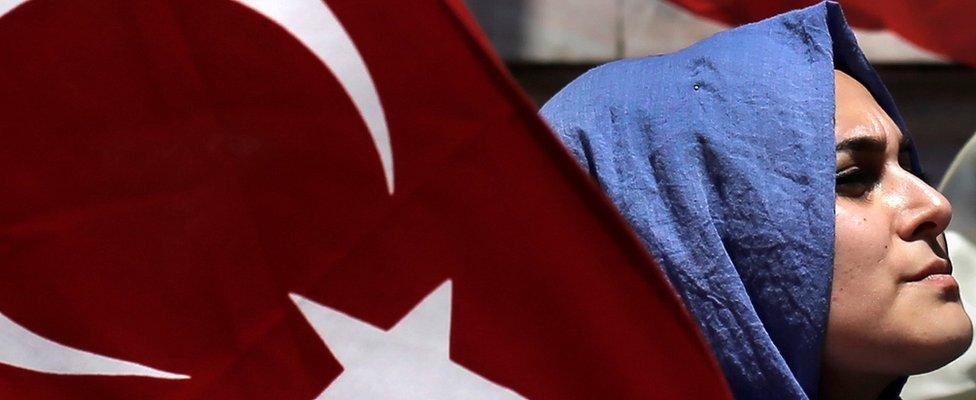
"A successful coup attempt would have been a tragedy for the country and the region. The lesson is that Turkish democracy is strong. People don't just blindly follow the government" - Yildiz, Istanbul.
"I know coups don't bring good things to Turkey, but we are desperate. I feel alienated from the people in the days after the coup. I don't like some of the people we see in streets. I guess you saw some of them - the Islamists. They will be stronger after this" - Joy, Istanbul.

The removal of thousands of officials has alarmed international observers, with the UN urging Turkey to uphold the rule of law and defend human rights.
The President of the European Parliament, Martin Schulz, has accused Turkey of carrying out "revenge" against its opponents and critics.
He also said a debate around restoring the death penalty was "deeply worrying". The EU has warned such a move would end talks over Turkey joining the bloc.
According to official figures from the prime minister's office, Friday night's coup attempt left 232 people dead and 1,541 wounded.
- Published19 July 2016
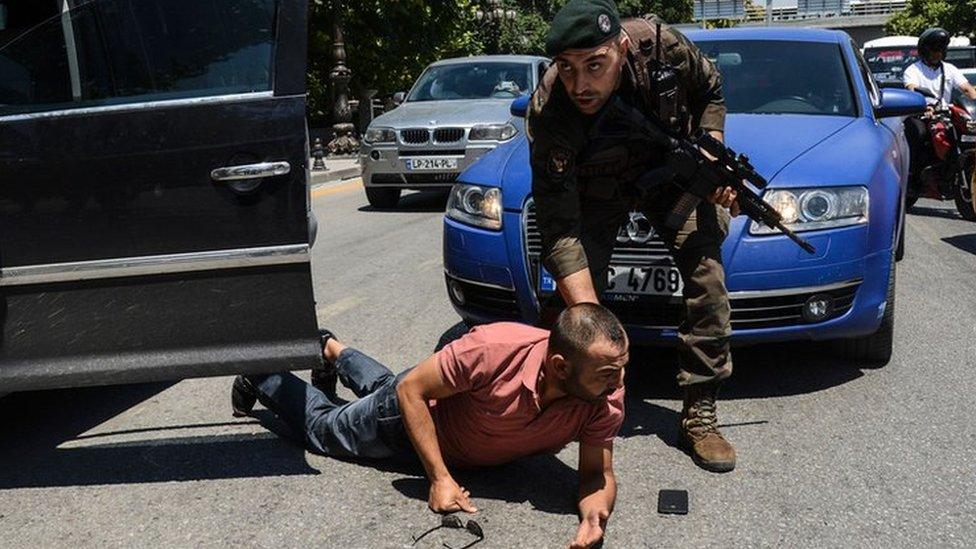
- Published19 July 2016
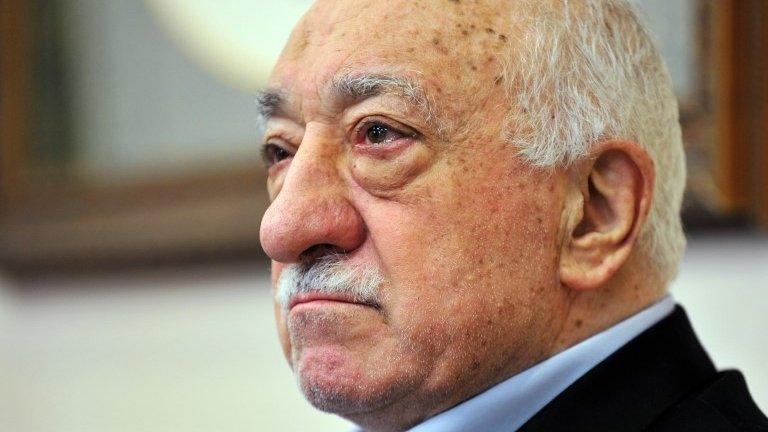
- Published16 July 2016
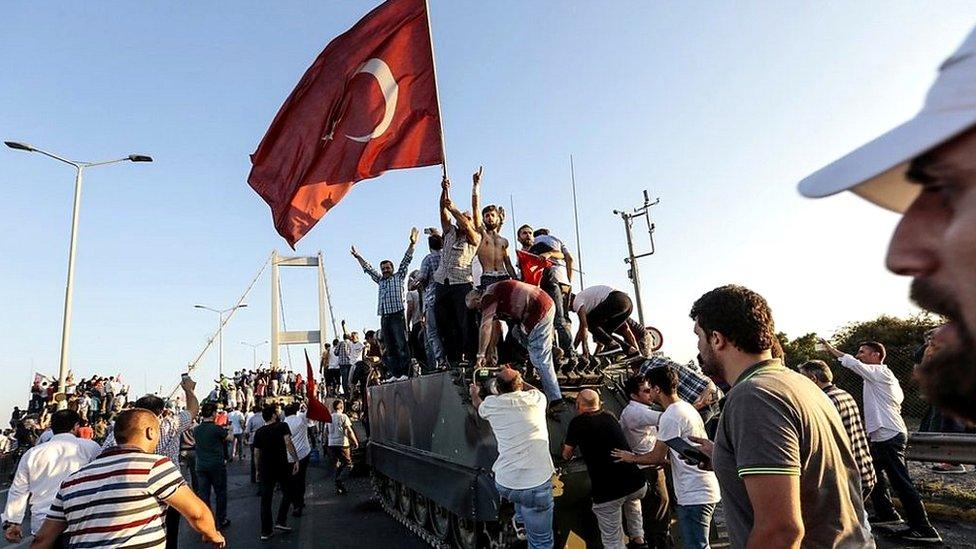
- Published16 July 2016
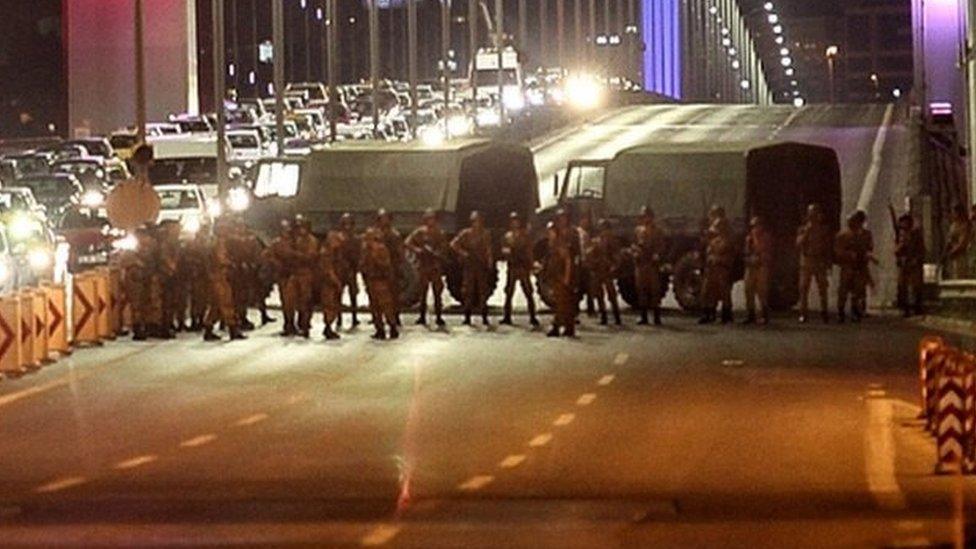
- Published18 July 2016
- Published18 July 2016
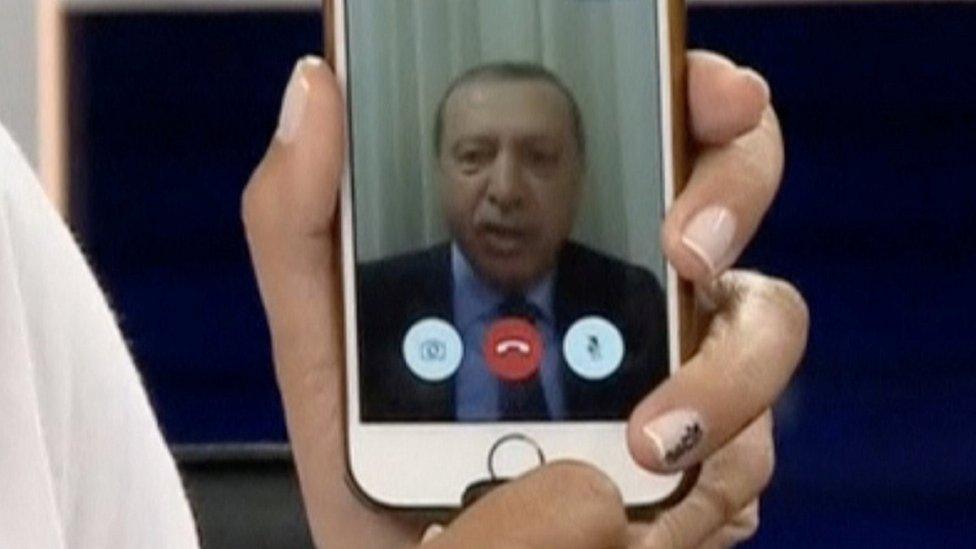
- Published19 July 2016
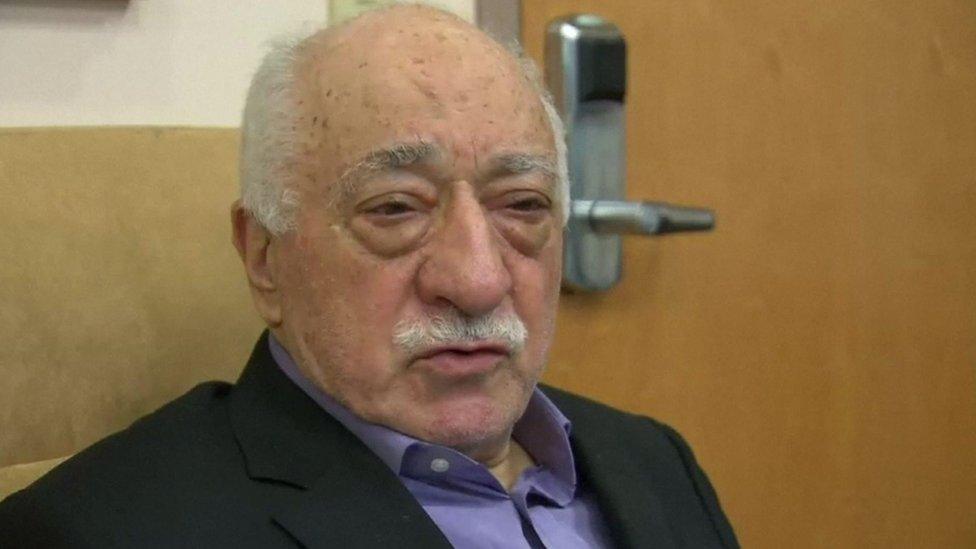
- Published18 July 2016
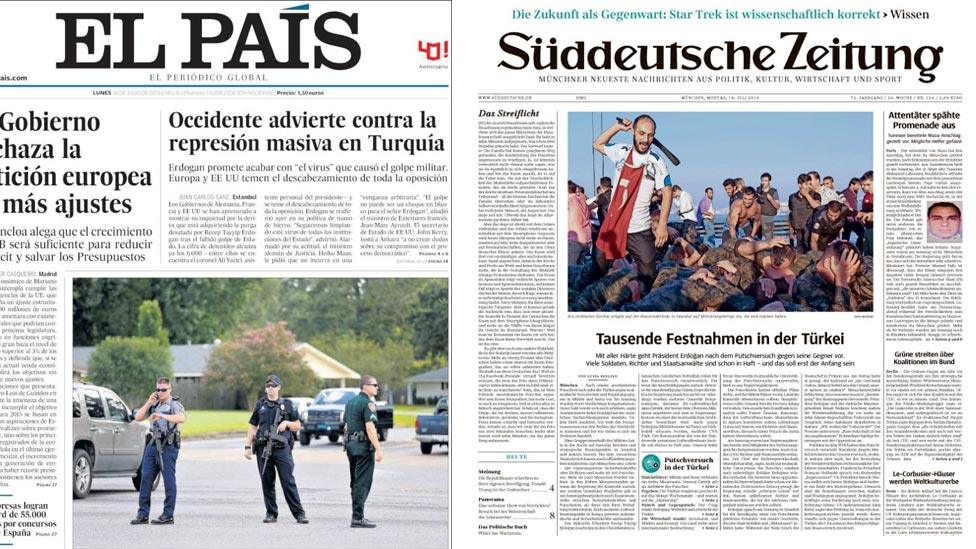
- Published16 July 2016
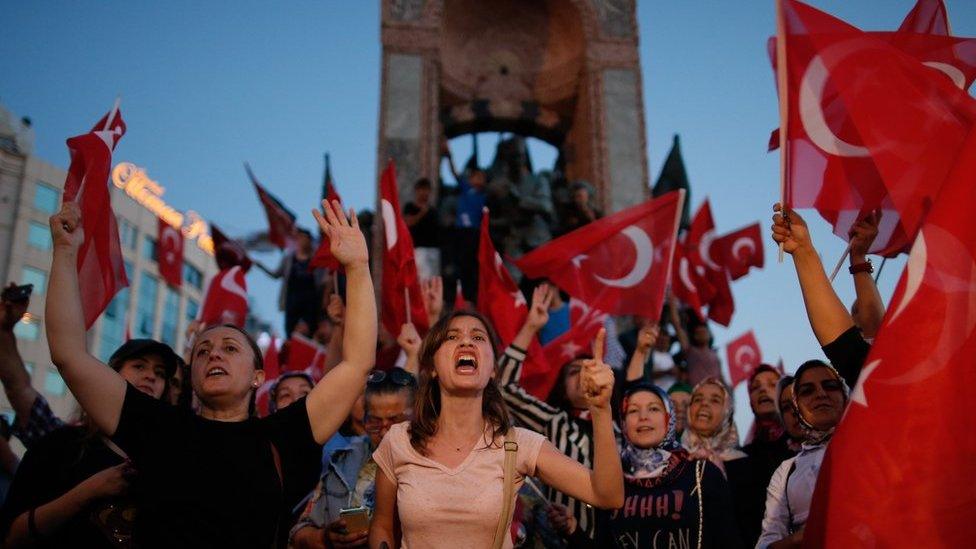
- Published18 July 2016
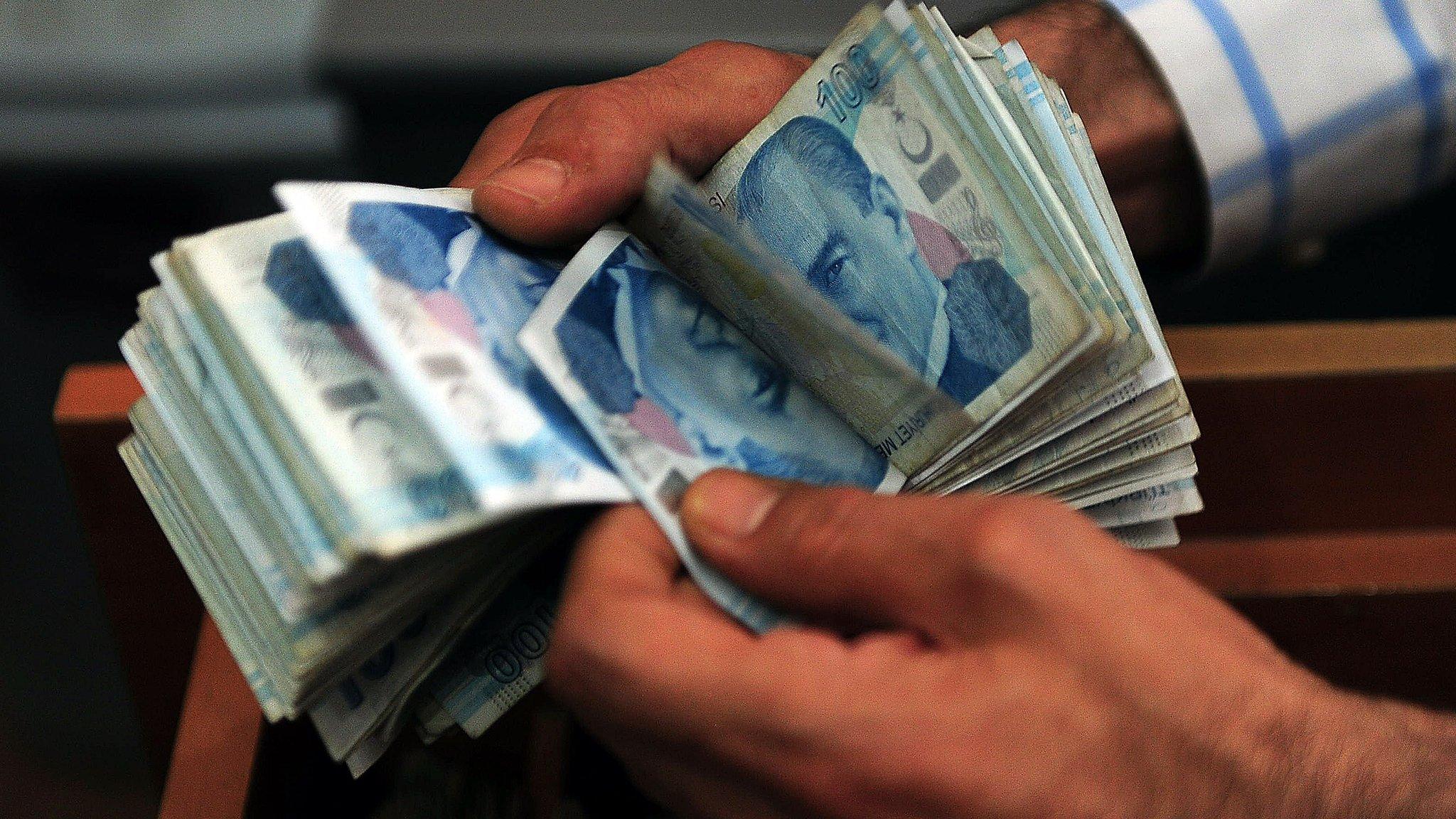
- Published17 July 2016
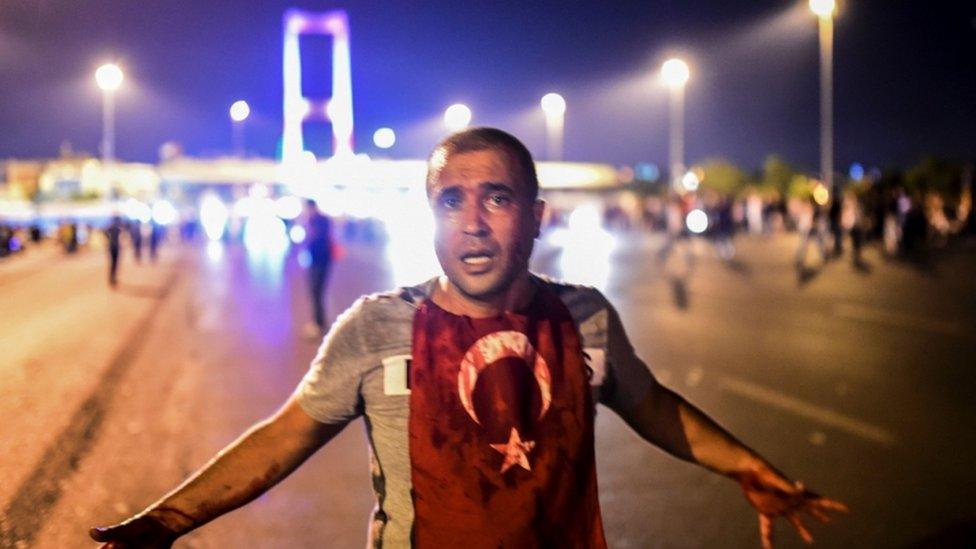
- Published16 July 2016
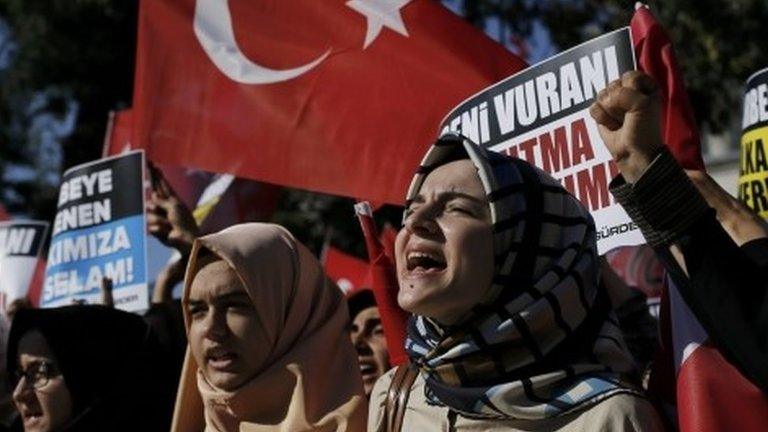
- Published16 July 2016
- Published16 July 2016
